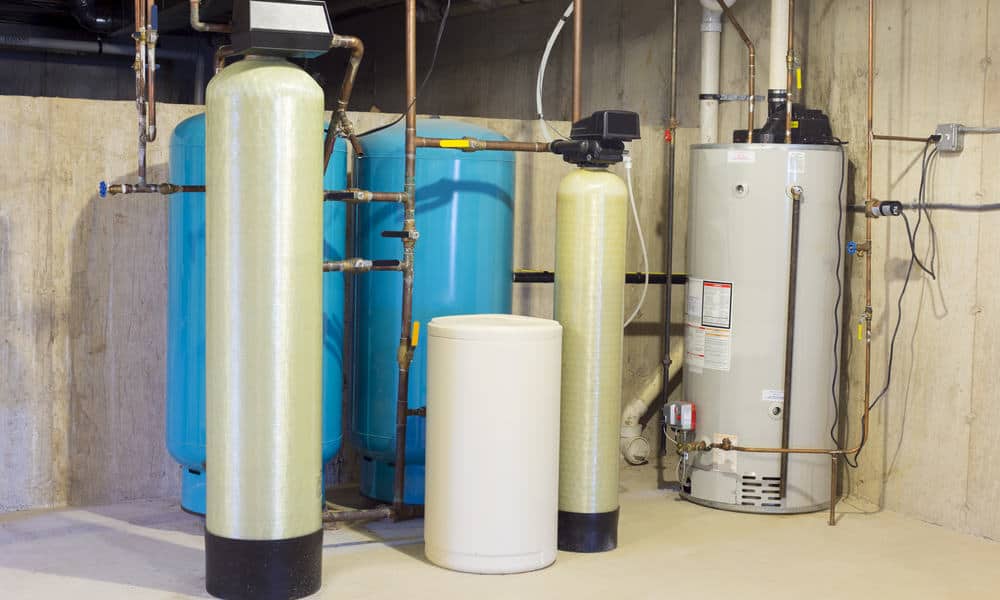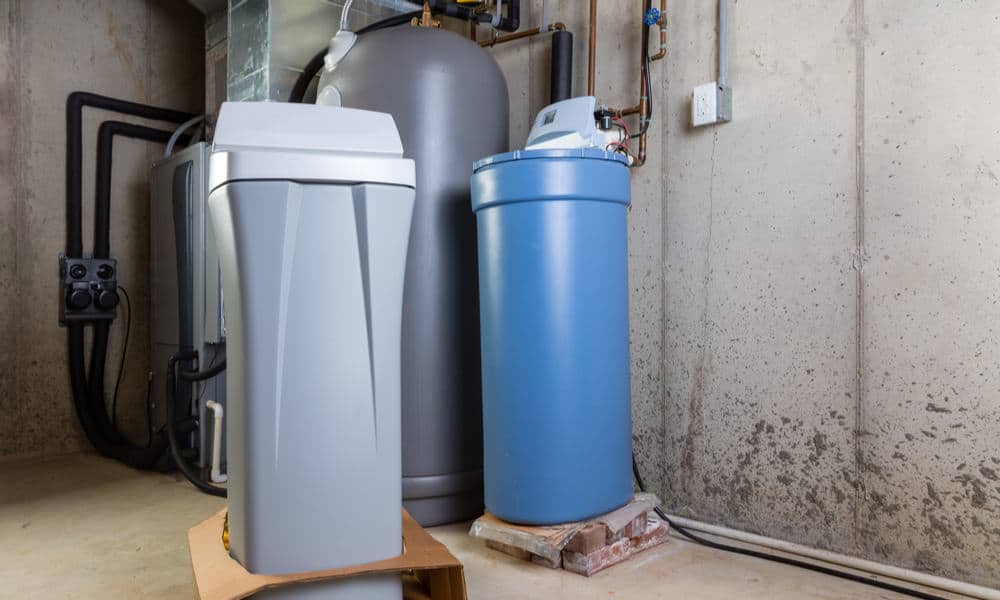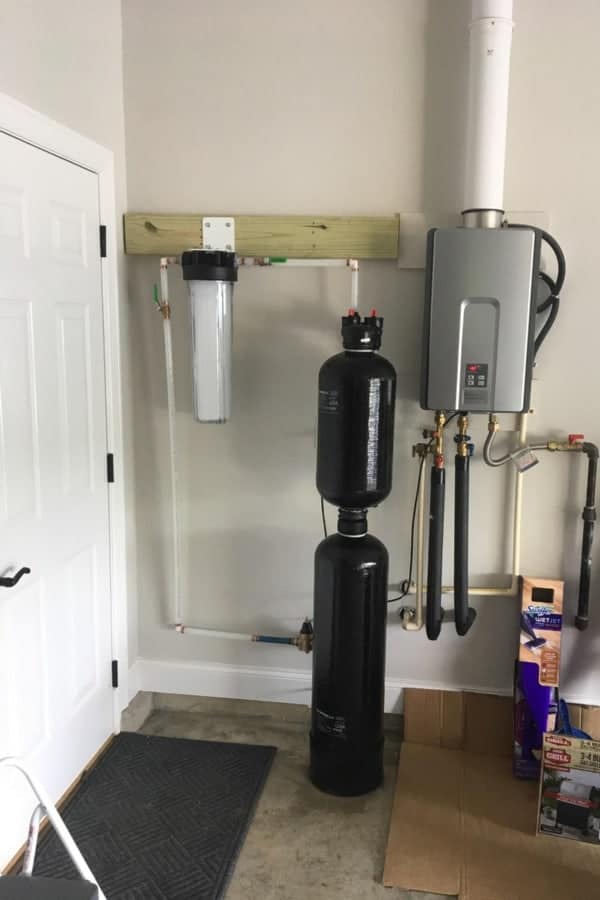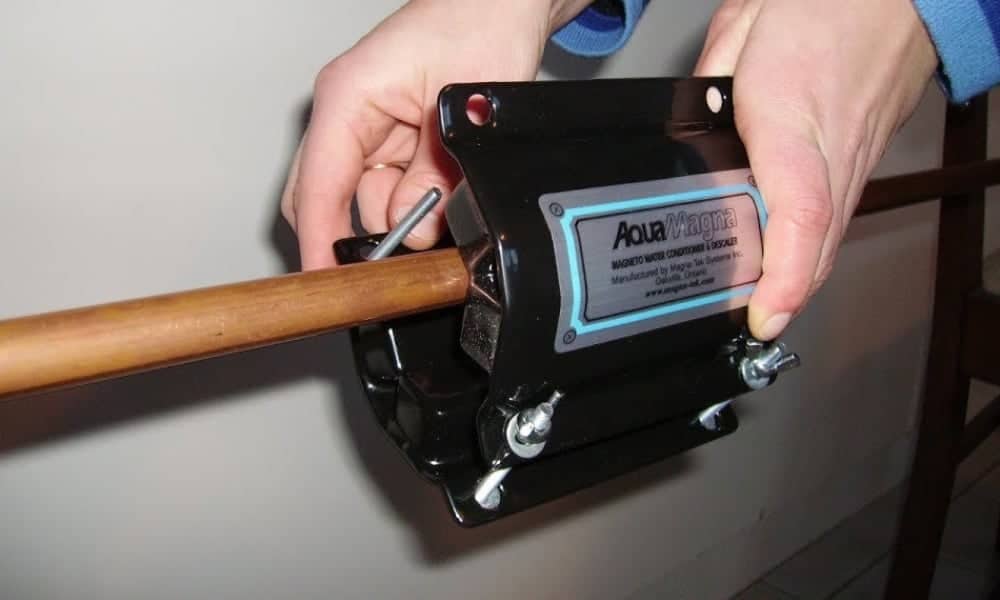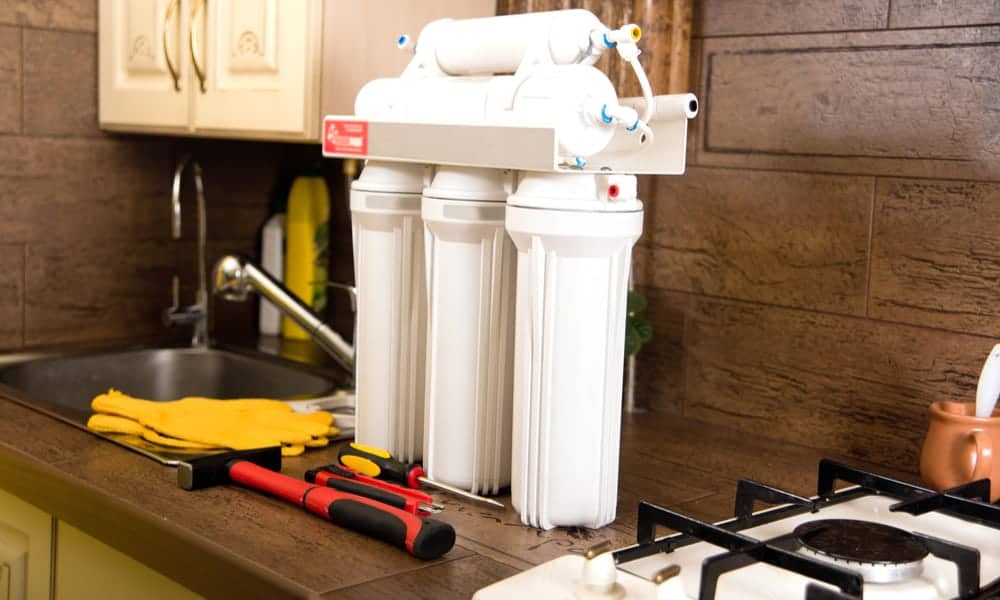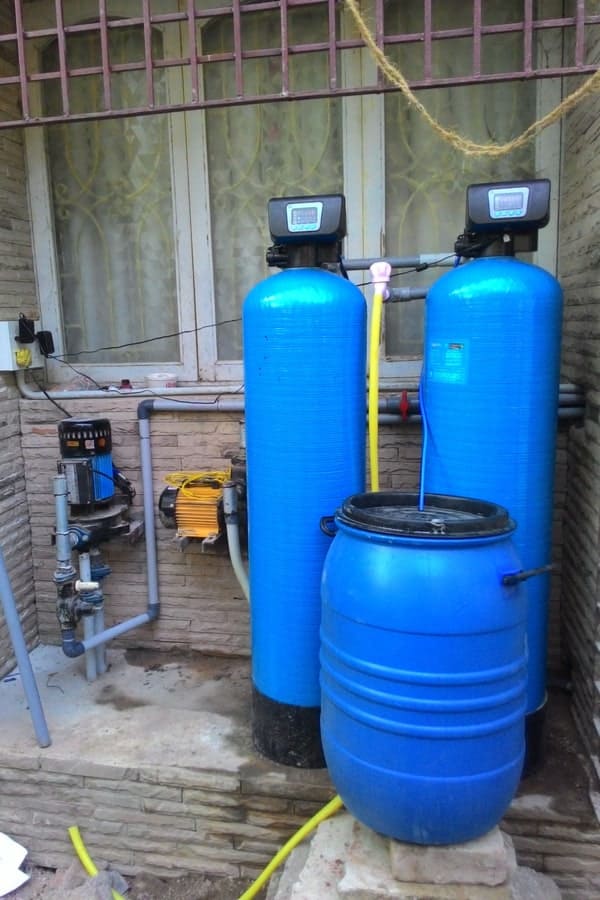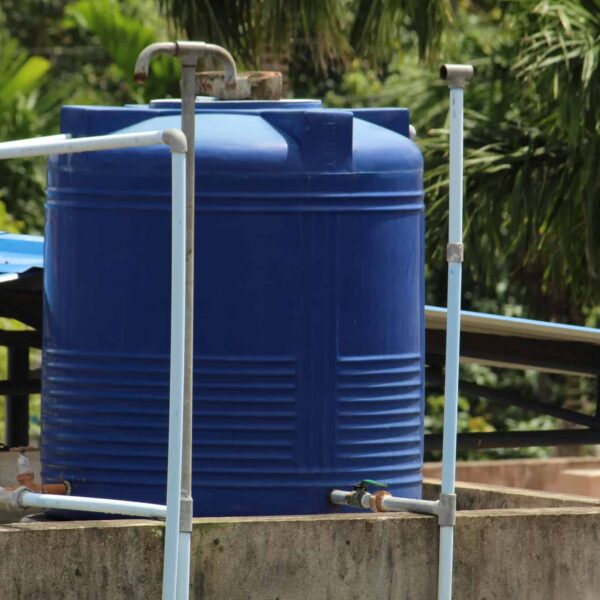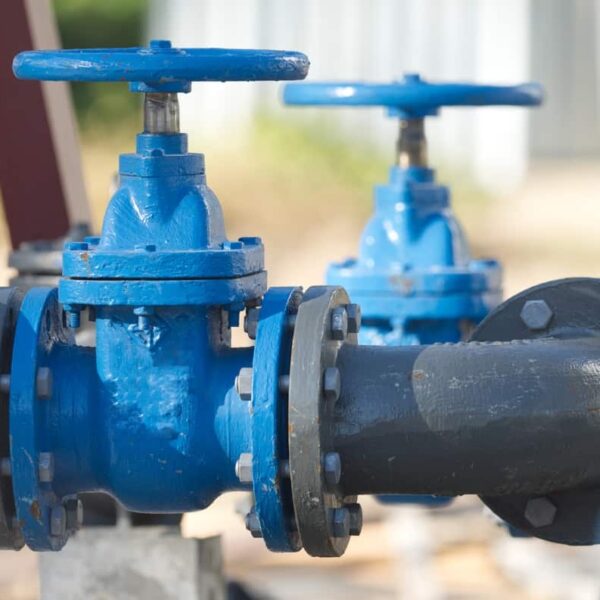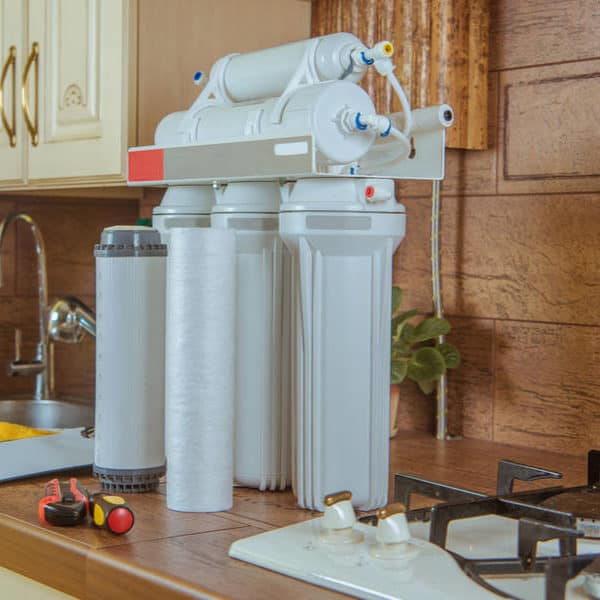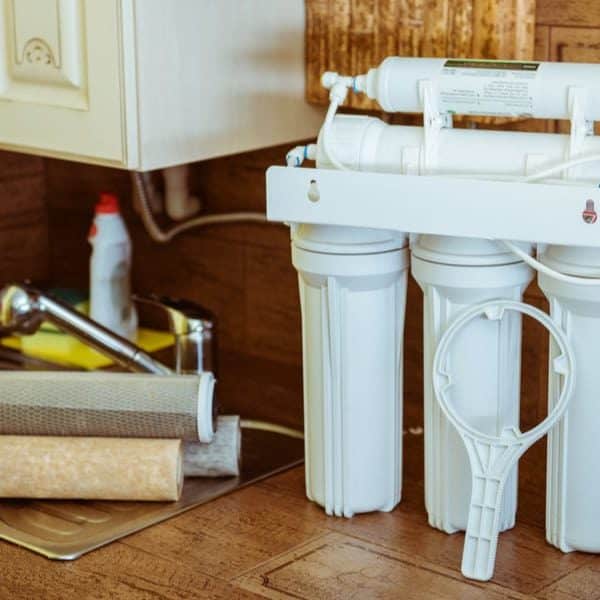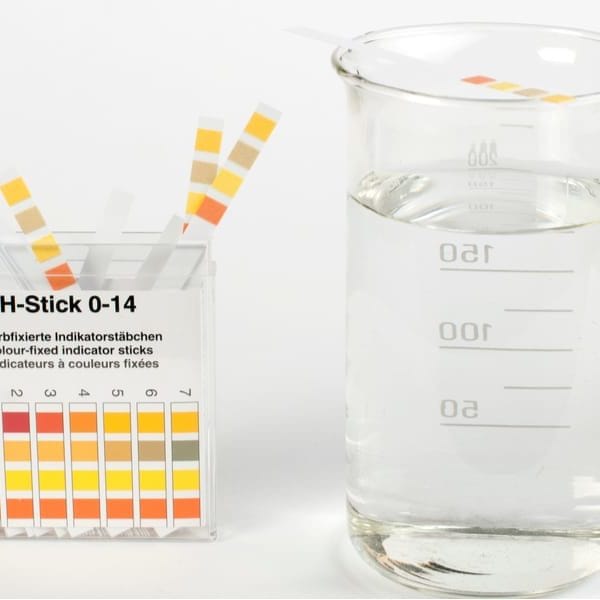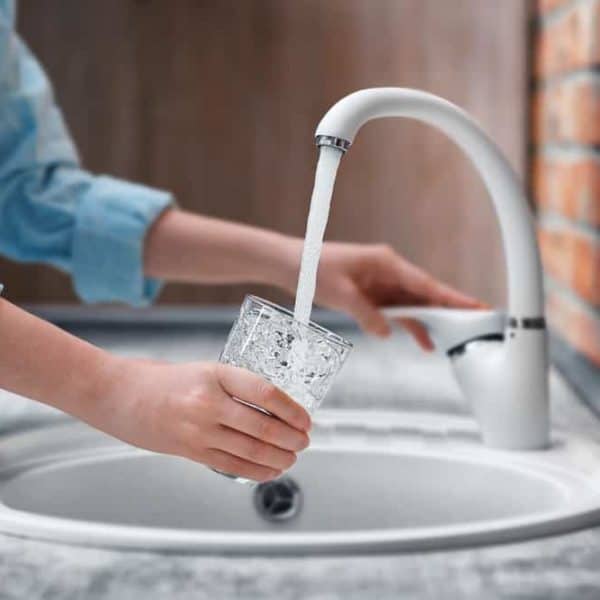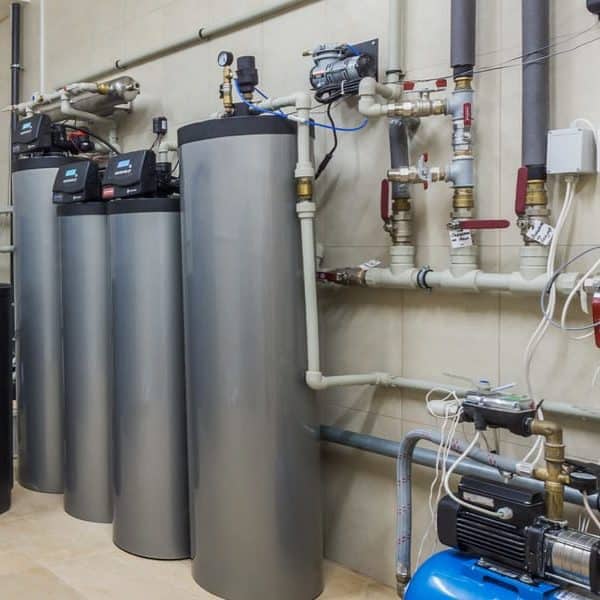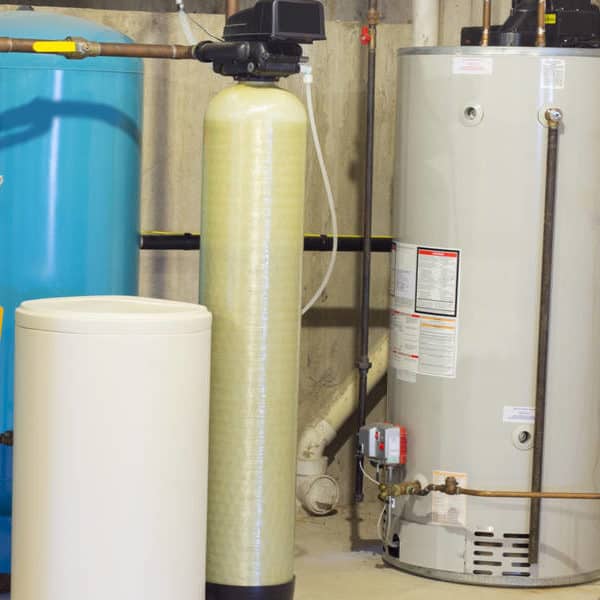Living in modern society has many disadvantages, and hard water is one of the worst. Except for being hard, that water is full of other, often harmful particles. Therefore, purifying and softening water we use for drinking have become a necessity these days. Water softeners will make your life much more comfortable, healthier, cheaper, and more carefree.
Using whole house water filters will prevent calcium and magnesium from entering your body and prolong the durance of the eclectic appliances in your home, such as a washing machine or heaters. As always, the market offers many different types of devices varying in price, brand, and the way of working.
Ion Exchange Water Softeners Cost ($400- $3000)
Ion exchange softener has two separate tanks to purify the water and is the most common model in the US. It is easy to install and can supply more than one appliance. Your basement or garage is probably the perfect place for placing the system.
The device may cost from 400 to 3000 dollars, depending on how big your household is. The price of the whole house water filter can be even higher if more members of the family live in the same house and use more water during a day. In that case, you will need a unit of a bigger capacity.
Always keep in mind that you need to include the price of installation and transport, as well. The best-case scenario is 500 dollars for this type of water softener. Plus, changing the material for the brain tank from time to time will cause additional costs.
That primarily refers to the cost of the salt for the brain tank that helps perform water softening. The average price of a standard 40 pounds (18 kg) bag of salt, enabling the smooth operation of the brain tank, is between 5 and 25 dollars.
Salt-Free Water Softener Cost ($400- $4000)
An average salt-free water softener is some kind of a ‘conditioner’ for water. Its huge advantage is that it won’t leave extra salt in your water since it uses a salt-free technology. On the other hand, compared to the Ion-exchange softener, this model can’t remove the calcium and magnesium from water.
The essence of the process this particular model uses is to turn hardness minerals into hardness crystals. Unlike minerals, these crystals won’t stick to the surface, waste too much energy, and destroy your electrical appliances.
You can find a wide range of types of this system on the market, which cost from 400 to 4000 dollars. The price will depend on the manufacturer and the capacity of the water you need to purify for your household.
On the other hand, there is no extra cost for additional bags of salt. You need to pay for the product, shipping, and installation, as well as to change the filter occasionally. That’s it!
Magnetic Softeners Cost ($15- $5000)
Most experts consider magnetic softeners pseudoscientific, but many people like these devices. The principle of their working is not complicated at all. You should attach two magnets from both sides of the water pipe, and they will change the structure of the deposits in the water.
Even though the calcium and magnesium will still stay in the water, the water deposits won’t stick on the surface after the process finishes. The advantage of this particular device is that it removes harmless chemicals from water your family uses. Plus, you can quickly install the system by yourself.
The cost of a magnetic water softener may vary from 15 to 5000 dollars. The price will depend on the manufacturer, size of the unit, and used materials. Before buying one, make sure to determine precisely how much water you spend in gallons (liters) per month. That way, you can pick out the best option for your household.
Reverse Osmosis Softeners Cost ($400- $18,000)
Reverse osmosis systems are an excellent choice for your home. Not only do they purify the water from calcium and magnesium, but they can filter the iron, fluoride, mercury, chlorine, and lead, as well.
Thanks to several stages of filtrating, the reverse osmosis system will provide the best possible quality of water for your family. The process of filtering doesn’t use chemicals, and you will get almost entirely clean and healthy water for usage.
To install this particular water softener, you should hire a professional. The maintenance of the system is comfortable and inexpensive, which means that you won’t have any additional costs.
Basically, they will depend on the amount of water you spent in your household monthly. The cheapest ones, which you can buy for 400 bucks, are those installed under the kitchen sink, which you use for drinking and washing the dishes.
On the other hand, you can choose the whole house water filter, which may cost up to 18,000 dollars.
Double (Twin) Tank Water Softener Cost ($1000+)
It uses the same principle as an Ion water exchange softener. The only difference is in two tanks of purified water, ensuring the necessary soft water for your family at any time and without a break. Therefore, you should install this particular system if you have a big household.
As you can expect, the price of this model is slightly higher. The cheapest one, which you can find on the market, will cost at least 1000 dollars. There are also additional costs for replacing the salt in the brain tank, according to the manual.
The system is an excellent choice for purifying calcium and magnesium from water. Unfortunately, you will add additional salt to it, as well. Therefore, be careful if any member of the family has a high-pressure problem.
Conclusion
There are many options for water softeners on the market, but the question is, do they pay off? The answer is definitely YES since households using those systems have less or no plumbing and electrical appliances problems.
Don’t forget the health issues, as well.
The water you drink and use for washing and bathing affects your body. Most people use filtered water just for drinking, but you should be smarter than that. Your skin also deserves soft water to stay shiny and healthy.
